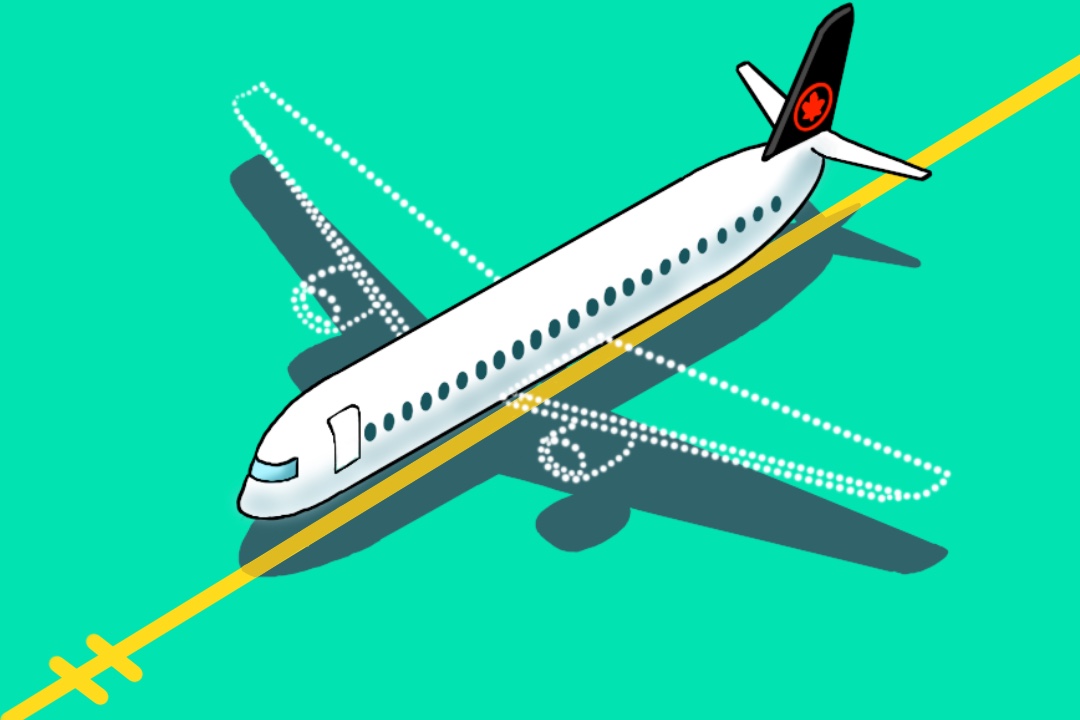In the past year, students have experienced hardships involving pandemic restrictions, online learning, and mental health. However, the pandemic has impacted international students most strongly — especially those from India, who juggled the impact of a lethal second wave of the Delta variant along with time zone differences in online learning.
Additionally, the Canadian government issued a ban on all direct flights coming from India until September 21, thus creating more problems for students. Due to this ban, Indian students are forced to take long and arduous journeys through two or more countries, which makes the cost of travelling to Canada exorbitant. Furthermore, this complicated process has taken a toll on students’ already fragile mental health, leaving them with the hard decision of whether coming to Canada is worth the journey’s tangible and intangible costs.
It is a common stereotype that, since international students pay a massive tuition fee of approximately $60,000, they must be financially comfortable. However, many students cannot afford their tuition without scholarships, and because U of T is publically funded, the university does not provide financial aid to international students. Therefore, these students have to resort to taking large bank loans.
Adding to the financial barriers posed by the pandemic, Indian students are even more vulnerable in their respective financial situations. The cost of travelling through two more countries has never been cheap, and students are now forced to pay over $5,000 for plane tickets that normally cost around $1,200.
Due to Canada’s requirement that Indian travellers have to carry a negative molecular COVID-19 test result from a third country, organizing travel becomes even more difficult since, in my experience, most airports in layover countries are not providing clear guidelines regarding on-site testing. This increases ambiguity around travel through these countries. Hence, students may have to stay in these countries for two or more days to acquire the test result. This aspect of the journey has introduced added costs that would not have been present in direct travel.
Having travelled through the Maldives route, I had to pay extra to make sure I got my COVID-19 test results within a day. These charges have presented students like me with a financial nightmare that continues to be aggravated by U of T’s high tuition fees.
The university’s online learning transition period, which only lasts until September 23, has been the main perpetrator of mental stress for Indian students. A recent survey by the Indian Students’ Society (ISS) revealed that, as of August 20, 65 per cent of students had not booked their flights to Toronto. Additionally, 58.1 per cent of the surveyed students believed that they would be unable to reach Toronto by September 23, or were unsure whether they would be able to do so. Students who are unable to reach Toronto before September 23 are evidently bound to miss their in-person lectures and may have to retake their courses.
This is unfair to the international students who are unable to travel to Canada due to reasons beyond their control. On raising this concern with the university, surveyed students revealed that the university asked them to take courses offered online or at different campuses. This does not help students who are in programs that offer only one or two online courses.
In addition to the limited transition period, students are concerned about the risks of their travel routes, from getting stuck in other countries to being exposed to COVID-19. When Serbia suddenly changed its quarantine regulations in July, 200 Indian students found themselves stranded at the Belgrade airport. Such regulation changes keep occurring within many countries, which makes it difficult to finalize travel routes.
Moreover, incoming first-year students face the additional problem of acquiring their visas in time due to the delayed application processing at the High Commission of Canada in India. This delay has made it nearly impossible for many first year students to even begin looking for a suitable travel route.
With no clarity about how to deal with the impending costs of their travel plans, Indian students are facing gratuitous barriers to pursue the education they have paid exorbitantly for. The situation is further intensified by the fact that international student visa holders are able to travel directly to the US and the UK. Moreover, many students are still experiencing problems obtaining visas and study permits.
While students continue to desperately look for the safest route possible, the university’s response remains unsatisfactory, with no move yet to extend the transition period or provide further resources to its students.
In an open letter dated August 30, the ISS made recommendations to the university that included the opening of emergency bursaries to support student travels, an extension of the online transition period, and the availability of additional mental health resources for Indian students. It is imperative for the university to enforce the transition period on all courses and faculties so that no student misses out on learning due to the flight ban.
This university has always taken pride in the diversity of its student body. It is time that U of T shows its appreciation to a huge part of this diverse student body and steps up for them in their time of need. As we face the challenge of yet another strange semester, we should remember to leave no student behind.
Devyani Chandra is a second-year economics and ethics, society and law student at Trinity College.


